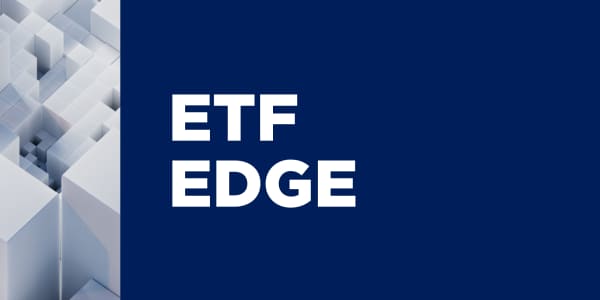
Watch out, big banks.
Charles Schwab's $26 billion deal to buy competing discount broker TD Ameritrade will create an investment behemoth that could eventually stand up to major U.S. financial firms, ETF.com managing director Dave Nadig told CNBC's "ETF Edge" on Monday.
Expected to close in late 2020, the all-stock deal comes at a time of sweeping change in the brokerage space. In early October, Charles Schwab announced it would drop trading commissions, leading online rivals E-Trade, Ally Invest, Fidelity and TD Ameritrade to follow suit.
"It hit TD disproportionate[ly] to the rest of the community because TD made more of their money off commissions than any other big online broker," Nadig said. "It hurt TD's stock and, brilliantly, [Schwab is] now coming in and sort of picking up bottom dollar after TD took all the pain of that initial announcement.
"The end result is a powerhouse that's going to be a $100 billion firm twice the size of BofA Merrill Lynch, and they're going to have proprietary ETF products, proprietary robo-advisors and the biggest advisor network in the world," Nadig said. As of Tuesday morning, Schwab and TD's combined market cap added up to roughly $92 billion.
That could spell trouble for the big banks, some of which are already struggling to maintain their stickiness with customers.
"I think we see a firm like Schwab become a default banking provider in this country," Nadig said. "It's where I do all of my banking. I know a lot of individual investors use Schwab as their bank, and that's not a business that's been particularly well run with TD despite the fact that they're owned by a large bank."
Tim Seymour, founder and chief investment officer at Seymour Asset Management, largely agreed.
"If anything, I think Schwab is competing with money-center banks," he said in the same "ETF Edge" interview. "I look at their balance sheet. Their balance sheet has been about extending home equity and extending collateralized loans, too, and I think that's genius and that's why they've had the ability to compete in online, which is where they've been pulling in those assets."
With TD in the fold, Schwab has multiplied its brand power and stickiness, an effect that investors will likely see repeated in both the consolidating online brokerage space and the exchange-traded fund industry at large, Seymour said.
"A lot of this is about consolidation and compression of expenses and fees and whatnot. And if you think about the ETF space, that's exactly what's been going on over the last couple years. You have the big get bigger and it becomes a lot more difficult for the smaller players to survive. And I think that's emblematic of what this deal's all about," said Seymour, who also appears regularly as a trader on CNBC's "Fast Money."
"Ultimately, the ETF world is one where you continue to see also the big get bigger, and I think the ability of these players to get into that space or continue to evolve in that space is going to be very interesting," the investor said.
And when it comes to antitrust regulation, this deal will likely have an easier time securing approval than other recent mergers that have hit high-profile snags, Nadig said.
"I think, if this was a bank merger, we'd get a lot more scrutiny. I think this sails through," he said.





